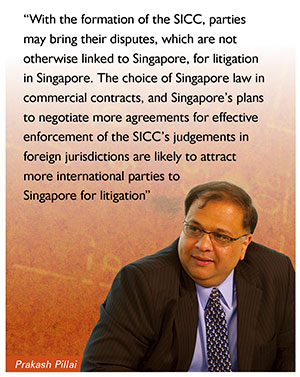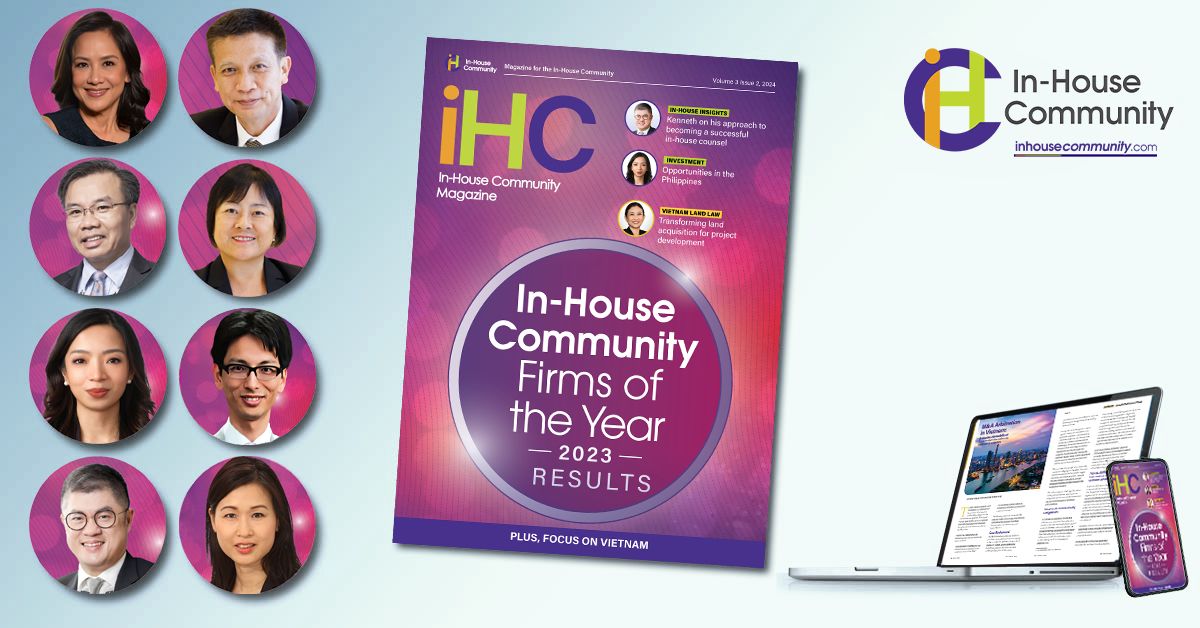 Giving insight into Hong Kong dispute resolution, specifically with regard to financial services, Damien Laracy of Laracy & Co. said that “Financial services litigation has dropped off in the last few years. Since the last financial crisis of 2008, most mis-selling and accumulator-type claims against banks have been resolved – generally in favour of the banks due to carefully and comprehensively drafted disclaimer of liability clauses, jurisdiction clauses and waiver clauses that operated against the claims of the customer”.From a different perspective, Surasak Vajasit, Managing Partner at Rajah & Tann (Thailand) comments: “I increasingly see parties in ASEAN looking towards Singapore as a neutral place for arbitration of disputes … In terms of Thai arbitration, there is still insufficient support in terms of qualified arbitrators and a lack of clear precedents in terms of enforcement. For this reason, I see Thai companies also looking to Singapore as a venue increasingly desirable and justifiable for their arbitration needs.” Hong Kong and Singapore are seen as Asia’s main dispute resolution hubs, with Hong Kong’s HKIAC recently celebrating its 30th anniversary and receiving a Global Arbitration Review award, but Malaysia, in terms of both litigation and arbitration, is stepping up, with Ong Chee Kwan, partner at Christopher & Lee Ong, observing that “The Malaysian judiciary has made much progress in recent years, shortening the timeline from the issuance of the writ of summons to trail from a few years to a mere 12 to 18 months”, adding that “There are no court fees save for filing fees which are relatively low (not more than a few hundred ringgits)”. Speaking of future litigations in Malaysia, Chee Kwan remarked “The advent of the ASEAN Economic Community will see free movement of goods, services, investments, skilled labour and free flow capital within the region, and we can expect to see judiciary playing its part to instill the confidence for the investors that their grievances will be adjudicated upon fairly and expeditiously”. |
 Disputes present us with the opportunity to negotiate or take a more adversarial approach (arbitrate or litigate). Litigation has traditionally been viewed as the most aggressive method – trying to take it all with both hands.As a jurisdiction, Singapore at the start of this year announced the opening of the Singapore International Commercial Court (SICC) in order to handle litigation on global business deals. According to Clyde & Co’s Prakash Pillai, “Singapore’s dispute resolution landscape has been evolving rapidly over the last few years”, and it “has been growing as the prime destination for dispute resolution in Asia”. Citing reasons for this belief, Pillai said that “First, Singapore continues to be the preferred base of operations for businesses and multi-national corporations, particularly those operating in South and Southeast Asia, which are highly likely to litigate their disputes in Singapore”. Giving another factor, Pillai stated “With the formation of the SICC, parties may bring their disputes, which are not otherwise linked to Singapore, for litigation in Singapore. The choice of Singapore law in commercial contracts, and Singapore’s plans to negotiate more agreements for effective enforcement of the SICC’s judgements in foreign jurisdictions are likely to attract more international parties to Singapore for litigation. “Third, the strong reputation of Singapore’s judiciary as being efficient, competent and honest may attract international litigants to resolve their disputes before the courts in Singapore”, Pillai went on to say. |
 As claimed by Chee Kwan in favour of litigation, “Most litigants still prefer court proceedings to arbitration as a court order can be enforced immediately without having to go through the preliminary steps of registration as required for an arbitration award. The cost of arbitration also deters litigants from opting for arbitration.”On the difference between the two in Hong Kong, Laracy said “It is trite to say that a properly drafted arbitration clause will exclude a right of recourse to the courts. In that sense, arbitration and litigation are indeed mutually exclusive. However, as arbitration continues to thrive in Hong Kong (in large part due to the efforts of the HKIAC), so too does the spin off litigation from arbitration”. Similarly, Pillai remarked that “Litigants can draw support from the binding legal precedent (compliance with which can be reviewed in appeal) and presence of formal legal procedures in litigation”. In reference to Malaysia’s arbitration centre, the KLRCA, Chee Kwan said “The KLRCA and judiciary each has a role to play and are both supportive of one another”. Though as a jurisdiction Malaysia is less established, with “The first 30 years of the HKIAC hav[ing] been spectacularly productive” according to Laracy, Malaysia can boast of being a less expensive jurisdiction than its counterparts, making it a particularly cost-effective venue. |
 In Hong Kong and Singapore too, those asked see the role of litigation complimenting arbitration, with Laracy saying “There remain many instances in which the functions of the Hong Kong High Court can be invoked to support and strengthen the arbitration process” and Pillai saying “Singapore offers robust and efficient regimes for both litigation and arbitration. Whether the difference between the two regimes can be advantageous or not depends largely on the preferences of the parties and the circumstances of their dispute”. |


















